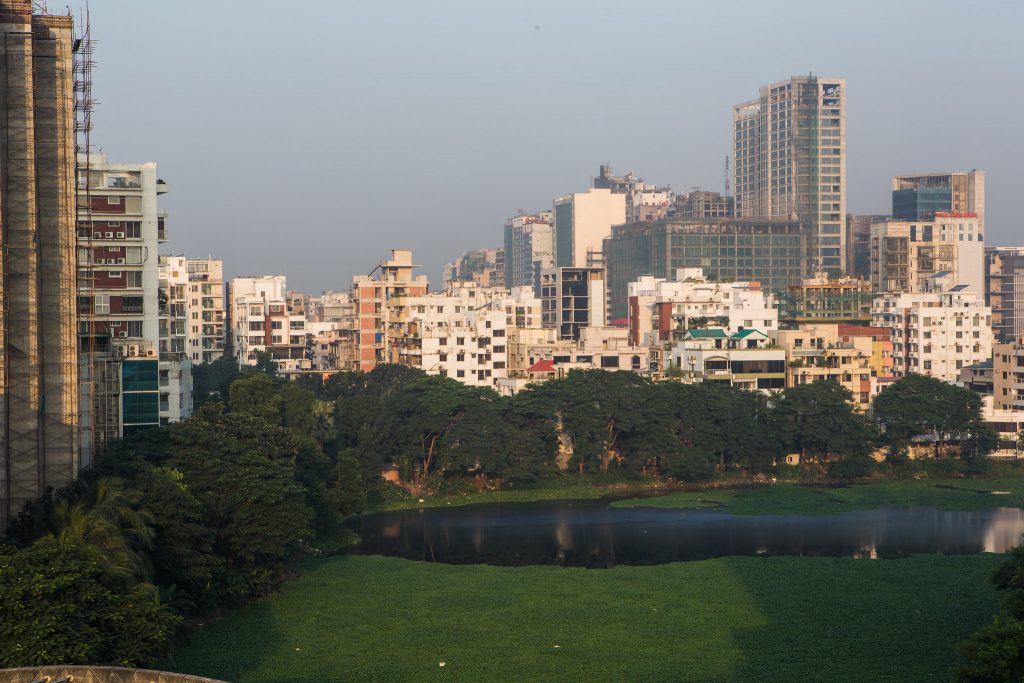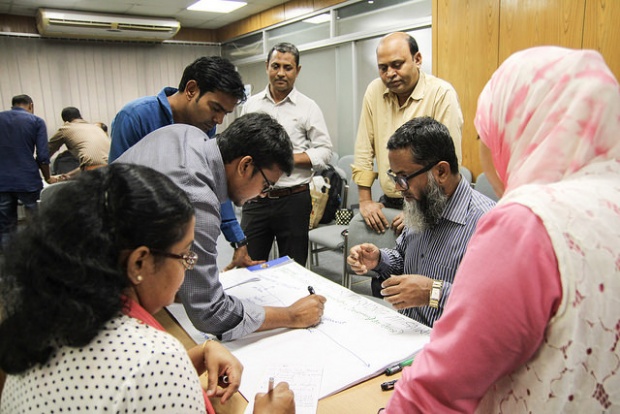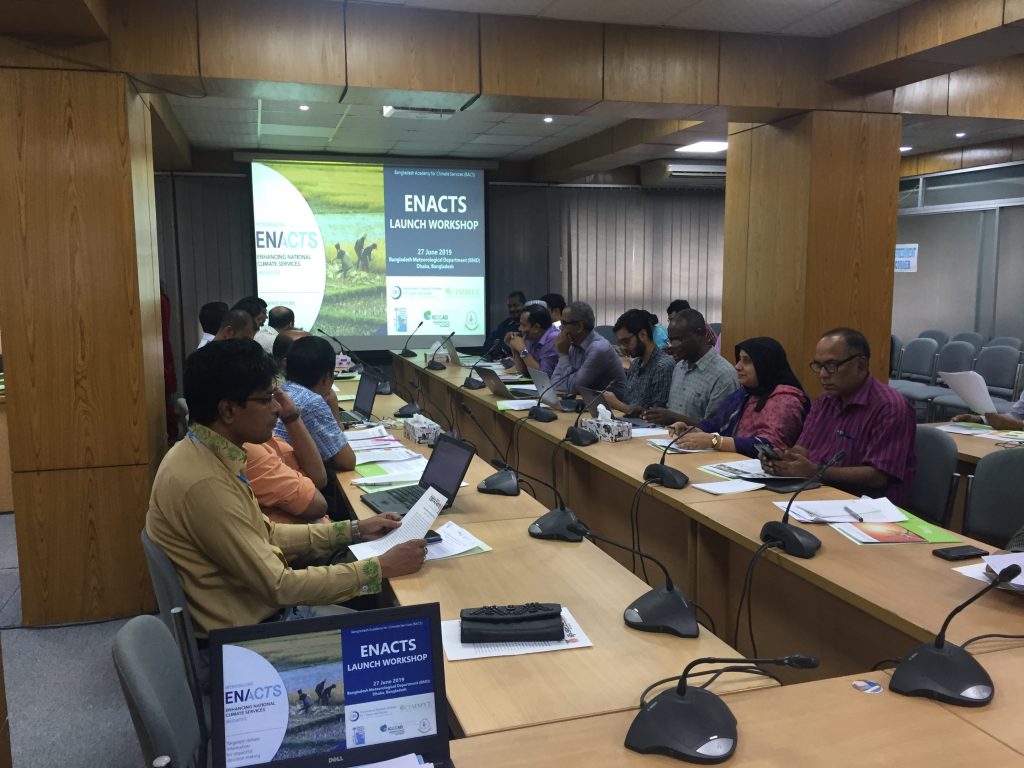ACToday Q&A: Ashley Curtis on International Projects
With its population of nearly 160 million people, Bangladesh is the eighth most populous country in the world. Its geography – tropical, low-lying, with a sizable coastline – make the country one of the most vulnerable to climate change. Rising sea levels, increased cyclone intensity and frequency, and higher temperatures all pose threats to an agriculture sector already under pressure to feed the country’s food insecure. The ACToday project is involved with a number of initiatives in Bangladesh aimed at managing this risk, learning from seasoned practitioners, and collaborating on proactive adaptation strategies for agriculture.
In the Q&A below, Ashley Curtis discusses what it means to manage a world project and the necessity of addressing present day variability in addition to its context of long-term climate change. Curtis is a senior staff associate at the International Research Institute for Climate and Society (IRI) and part of the ACToday Bangladesh team. She also coordinates IRI’s Climate Program and is actively involved with the IRI’s partnership with the International Federation of the Red Cross and Red Crescent Societies (IFRC).

You spent several years as a Peace Corps volunteer with a wildlife conservation group in the Philippines. How has this experience working directly in project implementation informed the work you do for ACToday Bangladesh?
Besides fine-tuning my karaoke repertoire? Peace Corps in the Philippines made me comfortable with fully immersing myself in different cultures. The most useful discussions often happen in casual conversation instead of formal meetings. Taking the time to appreciate local traditions, values and food is not only an incredible cultural experience, but is invaluable for building camaraderie and trust, laying the groundwork for working together. We’re not just coming in out of nowhere with no context – we’re there to learn about local perspectives and needs first before moving forward with an agenda.
As a project manager for ACToday activities in Bangladesh, I’ve learned to balance going with the flow – adjusting to the varying pacing and demands of remote collaboration – and pushing forward with what we are trying to accomplish. Understanding and accepting that projects rarely develop exactly according to plan has allowed me to be flexible and creative in their implementation.
Bangladesh is often referred to as being on the frontlines of the fight against climate change. Given the many dimensions of Bangladesh’s vulnerability, how is ACToday prioritizing which climate service initiatives can most effectively promote food security?
Beyond prioritizing specific climate services, IRI is working to provide sustained, holistic support for the development of climate services in Bangladesh. To this end, we co-founded the Bangladesh Academy for Climate Services (BACS) with the Bangladesh Meteorological Department, the International Center for Climate Change and Development, and the International Maize and Wheat Improvement Center. Sustained, holistic support includes both building local capacity to provide climate services and creating a network to connect people and organizations in a country where knowledge and activities are typically very siloed. There are so many efforts that aren’t connected; getting everyone on the same page replaces needless duplication with productive collaboration.

Bangladesh is also recognized as a world-leader in climate adaptation. What can the rest of the world learn from Bangladesh’s actions against climate change? Given the whole ecosystem of adaptation initiatives already underway in Bangladesh, what unique contribution does ACToday and Columbia University have to offer?
Bangladesh may be leading the way in climate adaptation, but we’ve found that the idea of providing climate services on shorter timescales is still new to most of our partners and stakeholders. Seasonal, sub-seasonal and even historical climate information can be useful in ways that differ from long-term climate projections. Bangladesh is vulnerable right now. It’s great that climate change is being embedded in long-term planning, but we also need to focus on dealing with the climate variability stakeholders are already experiencing.
“Fish and rice make a Bengali.” This proverb identifies two key staple foods in the local diet and two major focus areas for ACToday Bangladesh. Agriculture and aquaculture stakeholders have a more immediate need for seasonal and sub-seasonal forecasts than for longer-term climate projections. This was re-affirmed in the recent Enhancing National Climate Services (ENACTS) launch in Dhaka, where representatives from these sectors discussed ways in which they could use short-term climate information in decision making. To connect users with services available on these time scales, the upcoming BACS workshop in October will include an introduction to the ENACTS data sets and maprooms. Our goal is to develop a seamless set of climate services that connects all time scales. With this, users will be able to draw on information from different time scales as they need it.


You must be logged in to post a comment.